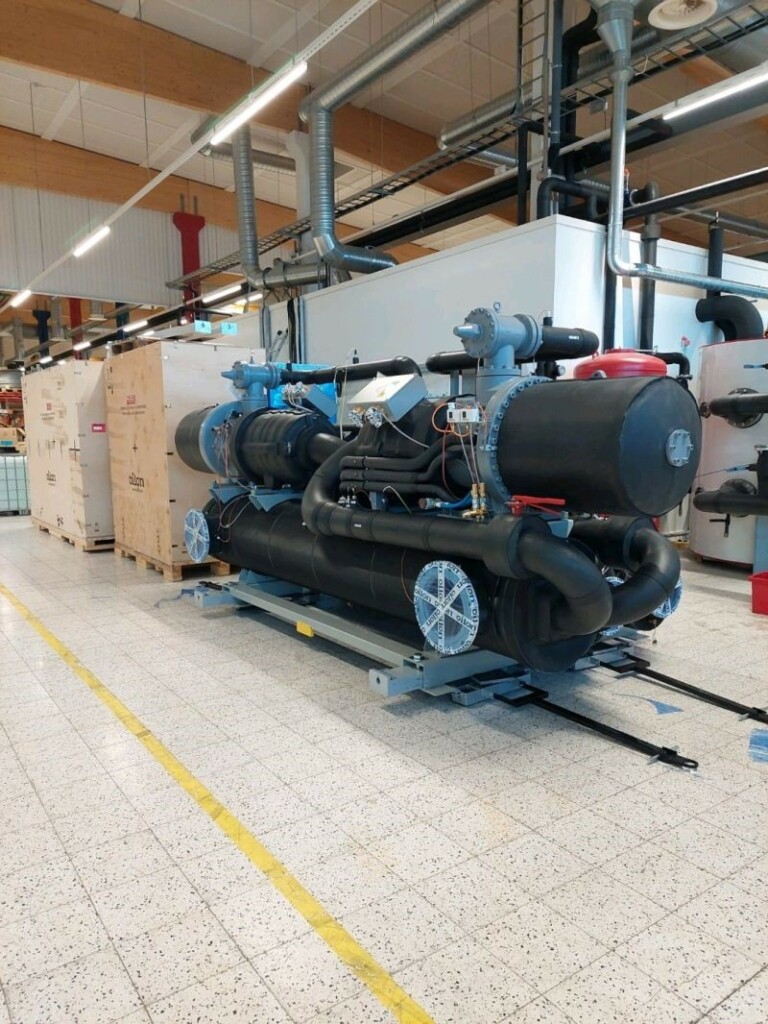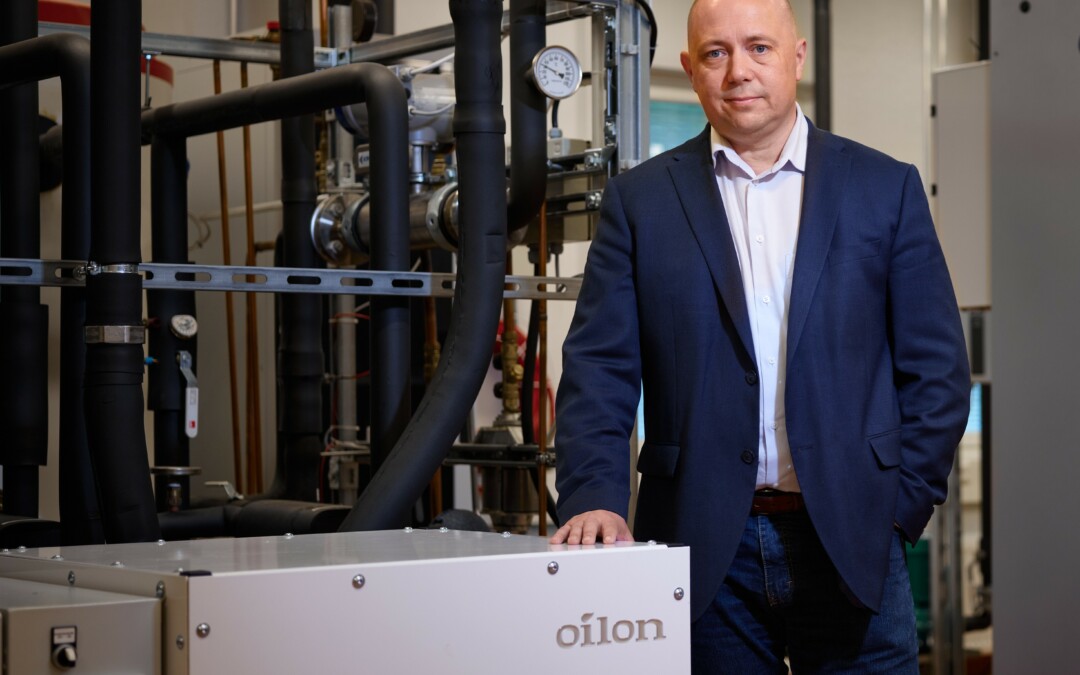In the future, Oilon heat pumps will recover waste heat from a large data center complex and convert it into emission-free district heating for a city and two other communities in the Helsinki metropolitan area. This will be the largest system for recycling waste heat from data centers in the world and the largest delivery contract in Oilon’s history.
Microsoft is building a data center complex in the Helsinki metropolitan area. Fortum, Finland’s leading energy company, will recover the waste heat from the the complex and reuse it for district heating. This will be the largest project for recycling waste heat from data centers in the world.
Oilon will supply Fortum with the industrial heat pumps required by the heat recovery system’s two heat pump plants. For Oilon, this is the largest delivery in the company’s history.
“The delivery is valued at approximately EUR 15 million. This project is a true testament to our ability to provide large-scale solutions and support our customers in the green transition,” says Oilon’s CEO Tero Tulokas.
Fortum is a forerunner in reducing CO2 emissions from energy production and aims at reaching carbon neutrality by 2030. The company continuously seeks out and implements the best and most cost-effective ways to break free from using fossil fuels for heating production. In this, heat pumps have a vital role to play.
“In the future, district heating networks will increasingly serve as a platform for recycling energy, allowing stakeholders to utilize different heat sources and energy streams. Heat pumps make this all possible. In this project, for example, cooling the data centers will inevitably generate waste heat, and this technology will allow us to recycle that heat,” says Thomas Ekholm, head of energy solutions, Fortum Finland.
Record-breaking coefficient of performance from energy recycling
Fortum’s two heat pump plants will be equipped with a combined heating and cooling solution, CHC for short. The heat pumps will provide cooling to the data centers, recover the waste heat generated, and transfer the recovered energy into the local district heating network. In other words, the plants produce heating and cooling at the same time.
“By recycling energy streams effectively, we can achieve outstanding coefficient of performance values. The total COP of the system is 6.6, which means that for each unit of electricity, the heat pump generates 6.6 times as much energy for heating and cooling,” says Jussi Alpua, Oilon’s sales manager responsible for industrial heat pumps.
Oilon will deliver several S series heat pumps for both heat pump plants. Each unit weighs as much as 10 cars, or around 15,000 kg. Each plant has an output temperature of 85 °C. Together, the two plants will produce nearly 40 MW of district heating.
The first heat pump plant is currently being built in Kirkkonummi, and the first heat pumps will be delivered to the site in early 2025. The Espoo project will follow a half year later.
At full capacity, the waste heat recovery system will produce enough emission-free district heating for 100,000 customers. This accounts for 40 per cent of the 250,000 district heating customers in Espoo, Kauniainen, and Kirkkonummi. For Fortum, this means a permanent CO emission reduction of up to 400,000 tonnes per year. Furthermore, the two heat pump plants will correspond to more than 1% of the emission reduction required for achieving Finland’s carbon neutrality target.

Internationally significant project
Finland’s ambitious carbon neutrality target sets Finland at the forefront of EU countries. As Finland’s leading energy company, Fortum is now providing a persuasive practical example of how the target can be reached – in a project utilizing Oilon technology, no less.
Traditionally, heat pumps have been seen primarily as a means of making heat generation more efficient in industrial applications and energy production. In recent years, the trend has started to shift towards using heat pumps also as a primary method of energy production on a wider, industrial scale.
“From a technological standpoint, the big thing is that we’ve created a powerful overall solution by utilizing a combination of several heat pumps. This provides an extremely wide operating range, allowing the system to respond to process requirements, especially the varying need for heating and cooling, in a flexible and accurate way. By connecting some of the heat pumps in series, we can utilize staged heating and cooling production. This provides an excellent coefficient of performance across the entire capacity range,” says Martti Kukkola, Oilon’s chief business officer for industrial heat pumps and chillers.
According to Kukkola, this project is a great example of combining two trends: electrification of energy production and recycling energy by utilizing waste heat. The project is extremely interesting not only from a national standpoint but also at the international level.
“Large global companies are keeping an close eye on what we do to achieve carbon neutrality in energy production here in the northernmost reaches of Europe. This reference case will open many doors for Oilon in the international market, providing access to increasingly large projects. In the future, heat pumps will play a bigger role not only in the global marketplace but also in Oilon’s business,” Kukkola says.

